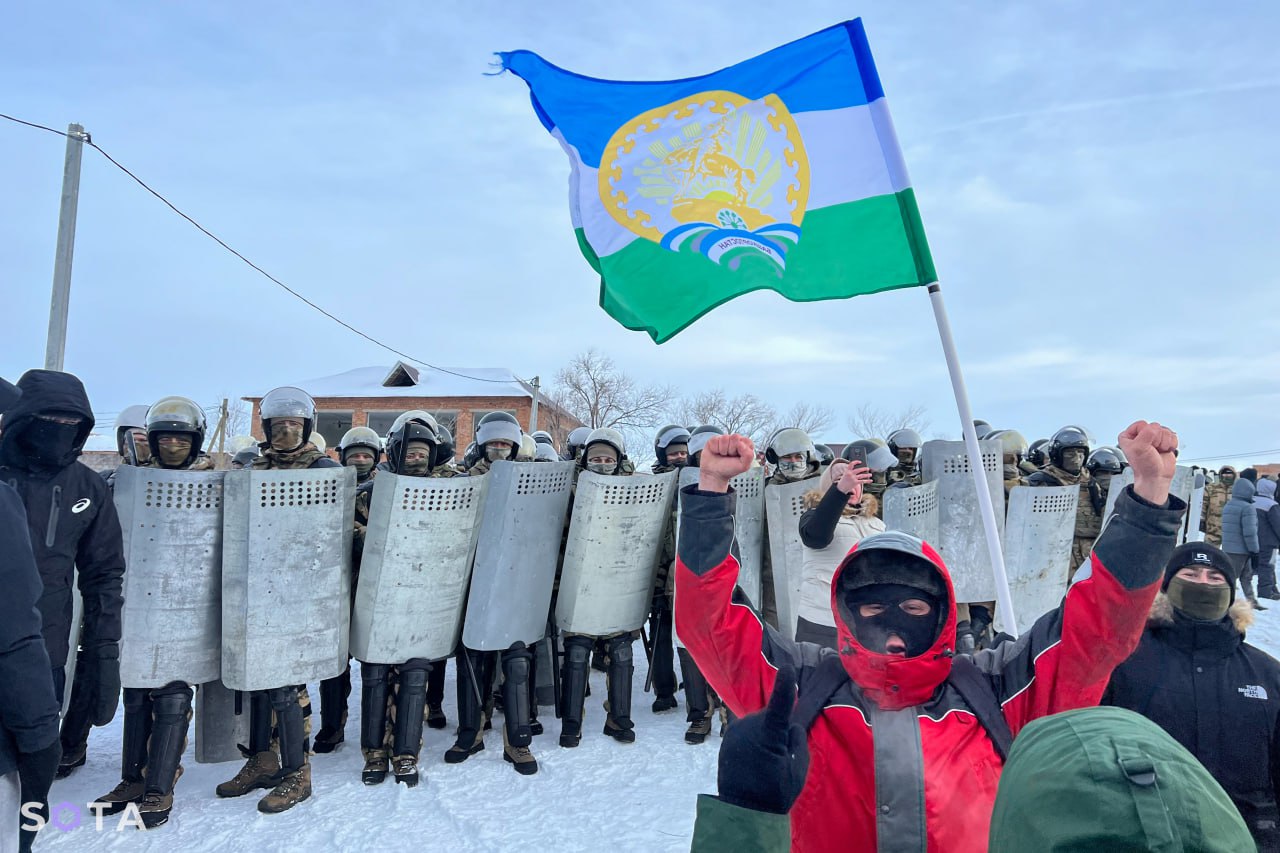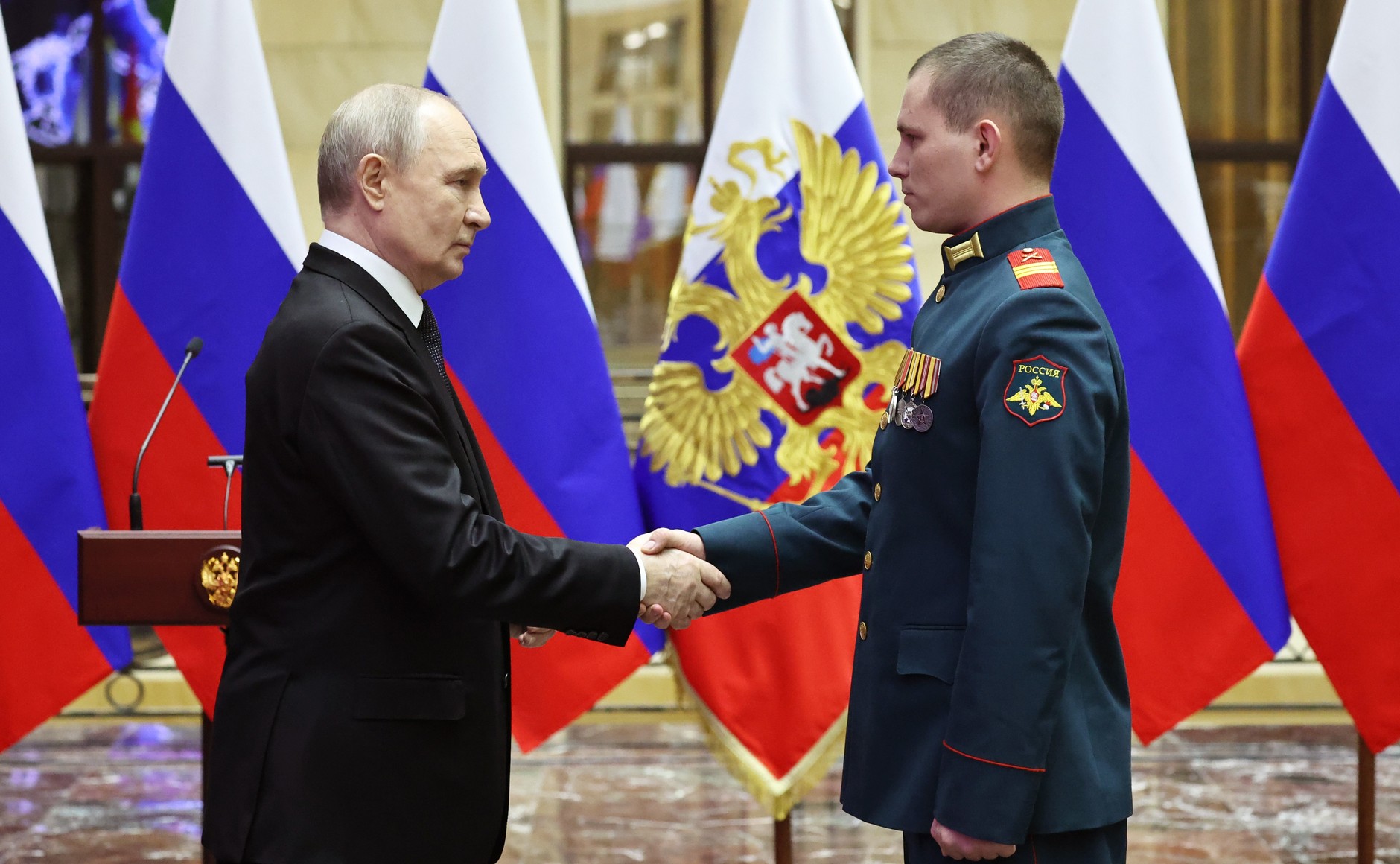
Bashkir Protests Sending Shockwaves Across Russia and Beyond
Bashkir Protests Sending Shockwaves Across Russia and Beyond
Executive Summary:
- Mass protests in Bashkortostan featured calls for the independence of the Middle Volga republic and have shattered the image that Russia is united behind Putin.
- These events have convinced Bashkirs and other non-Russians that their time is coming, and Kyiv believes that the non-Russian peoples will act soon enough to affect the course of Moscow’s war against Ukraine.
- The demonstrations have sparked fears in the Kremlin and prompted some Russian nationalists to arm themselves to put down any non-Russian actions.
On January 17, a Russian court in the Republic of Bashkortostan returned a guilty verdict against environmental activist Fail Alsynov, sentencing him to four years behind bars. The verdict seemed to be an unremarkable event for Russia, where lengthy prison terms for pseudo-crimes such as criticizing Moscow’s war against Ukraine have become commonplace (see EDM, January 9). Government officials in Ufa and Moscow had assumed that the Bashkirs would be intimidated rather than outraged by the sentencing and not take any action. This time, they were wrong. In an echo of the protests in the Baltic countries a half century ago, thousands of Bashkirs, who earlier fought to defend the republic’s environment from industrial development, took to the streets over three days to protest Alsynov’s sentence (Idelreal.org, January 20, 2023; Window on Eurasia, June 26, 2023). They demanded that their republic head be sacked, condemned Russian President Vladimir Putin’s war in Ukraine, and even proclaimed the independence of the Middle Volga republic as their ultimate goal (Charter97.org, January 17). Neither Ufa nor Moscow has been able to prevent the protests in Bashkortostan from sending shockwaves throughout the country. This has led to speculation that what happened in Bashkortostan may soon spread to other non-Russian republics just as Baltic activism did 40 years ago. Even some leading Russian nationalists have concluded that they must arm themselves to prevent such a scenario.
Both the republic’s officials and Moscow responded predictably to their own miscalculations. Ufa’s law enforcement attacked the crowds with tear gas, rubber bullets and stun guns; arrested dozens; and issued criminal charges that may land some behind bars for up to 15 years. These actions have caused the protests to quiet down, at least for the time being (Realtribune.ru; Kasparov.ru, January 17; Newizv.ru, January 22). Radiy Khabirov, head of Bashkortostan, alleged that Ukrainian and Western provocateurs had organized the protests (Meduza, January 18). Moscow denied that any serious protests had occurred and sought to throw a veil of secrecy over the events, blocking the Internet and restricting coverage in state-run media (Nemoskva.net, January 17; Stoltie.ru; Verstka.media, January 19).
No other non-Russian nation has yet followed the Bashkirs in protest. Almost all, nevertheless, are paying close attention to the recent developments and asking themselves why the Bashkirs moved first. On the one hand, non-Russian activists, especially those now forced into emigration, have spoken out in support of the Bashkirs—words that resonate within their own nations (Abn.org.ua, January 19, 20, 22). On the other hand, other non-Russians have pointed to the unique characteristics of Bashkortostan to explain its greater activism, including the Bashkirs’ minority status in their own republic (see EDM, November 8, 2016). They highlight Bashkortostan’s long history of environmental activism, a characteristic shared by other republics such as Komi and Sakha but far from all (Window on Eurasia, October 25, 2022;November 10, 2023). These analysts have also suggested that their nations will eventually follow the Bashkirs, but perhaps not as soon as some may hope given the risks of repression. Some activists warn the West not to expect too much too quickly, though they are committed to eventual independence from Russia (Publizist.ru, January 17; Radiounet.fm, January 19; Idelreal.org, January 21).
Kyiv represents one capital where such expectations are running. A day after the demonstrations in Bashkortostan began, Ukrainian activists held a briefing titled “Protests in Bashkortostan—the Beginning of the Collapse of Russia” (Abn.org.ua, January 18). The next day, Alexey Danilov, secretary of Ukraine’s National Security Service, argued that the events in Bashkortostan mean the West must now quickly prepare for the disintegration of Russia (News.liga.net, January 18). Some activists stated that, if these protests continue, Bashkirs now fighting in the Russian military in Ukraine will seek to return home to take part in a national revolution (Polskie Radio, January 19).
Russian nationalists are horrified by the protests, and the Russian government itself seems to be frightened by the spread of such sentiments. In response, some Russian nationalists called for the authorities to allow the Russian people to arm themselves so they can suppress any non-Russian challenge, be it from the Bashkirs or from immigrants (Ritmeurasia.ru, January 19; Publizist.ru; Vz.ru, January 22). That would constitute a major expansion in the efforts of some Russians to form self-defense units against migrants and could trigger more serious clashes along ethnic lines (see EDM, November 9, 2021).
Few in Moscow are likely to support such a policy. The very fact that it is seriously being discussed, however, reflects the Kremlin’s heightened fears. Vladimir Pastukhov, a distinguished Russian scholar now based in London, says that Moscow officials have good reason to worry. The protests in Bashkortostan, he says, are “comparable only to the pre-war protests in Khabarovsk, fueled by local patriotism, and perhaps second only to the Prigozhin rebellion” in terms of its possible impact on Russia’s future (T.me/v_pastukhov, January 18). The Kremlin must recognize that it has only itself to blame. Its war against Ukraine “and the associated policy of great-power chauvinism is now awakening powerful but hitherto dormant forces in the peoples of Russia. This revival means that they are ready to direct their protests against the regime,” especially as Moscow violates their social needs.
The protests in Bashkortostan may serve to be the trigger for Russia’s eventual rupture. As Pastukhov argues, “What we are seeing now is a historical pattern like the one that Russia followed when its empire fell apart two times before. We are not going to see something new this time either.” According to the Russian scholar, it is critical that everyone pay attention to that reality because “the energy of this protest is not directed only against the current regime.” The uproar is directed at Moscow’s traditional organization of political life. Protests energized by this sentiment will not “stop at anything before the collapse of Russia.” Pastukhov concludes, “Russia is sitting on a time bomb that Putin himself has placed under it, but that bomb is one that will [likely] explode only after he leaves the scene” (T.me/v_pastukhov, January 18).


